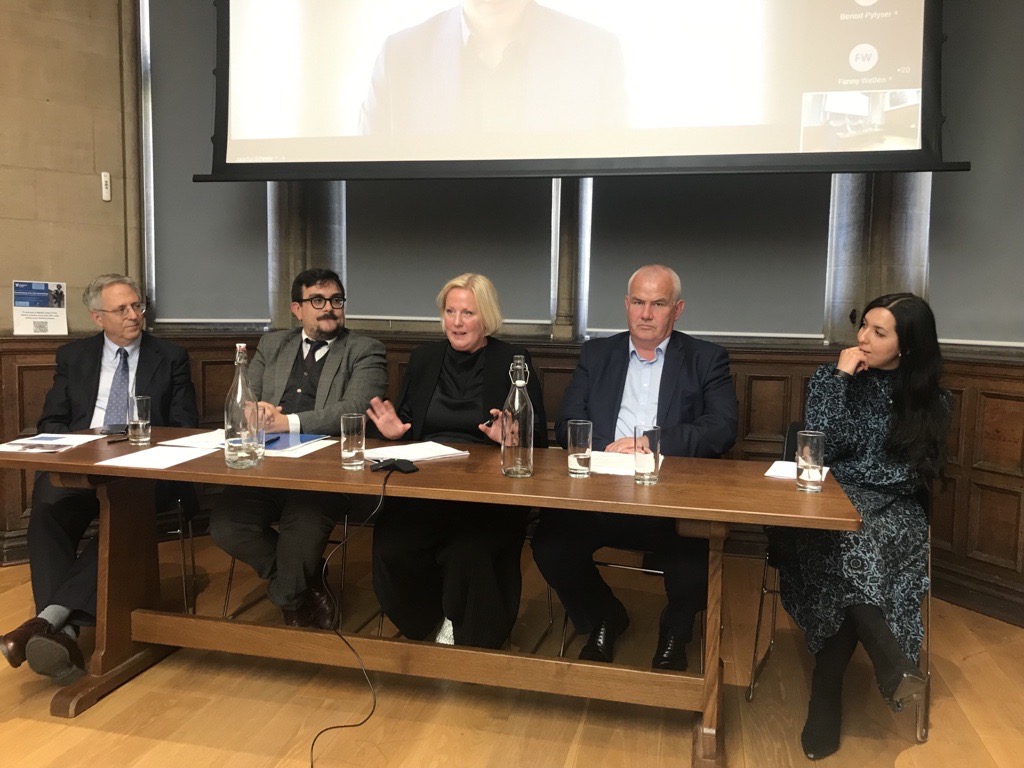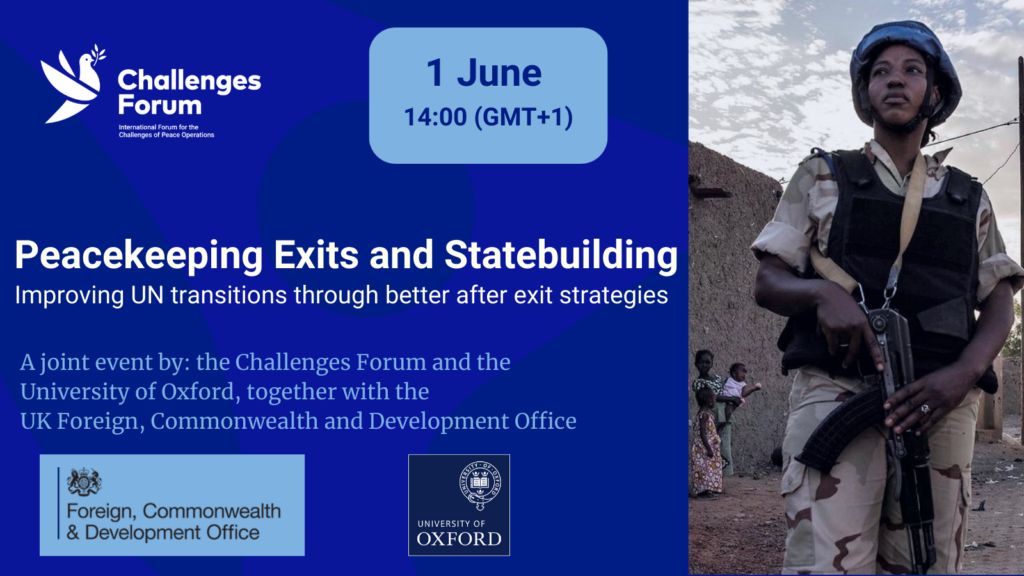Discussing UN Transitions in Oxford
What can be done to improve UN transitions and how can empirical data help make after-exit strategies more sustainable? This was the theme of our panel discussion at the University of Oxford on 1 June.
The event was a launch of the research brief by Prof. Andrea Ruggeri and Dr. Maline Meiske, titled “What is the State of the State when UN Peacekeeping Operations Leave?”. It shows that while many host state capacities may improve during United Nations peacekeeping operations deployment, often positive state-building outcomes cannot be obtained after the closure of the operation.
During the discussion, the panelists proposed some concrete measures to improve UN transitions, such as the need for proactivity in the planning of transitions. It is crucial to view transitions as a gradual process rather than as a single point. Benchmarking can be a measure to assess the transition process step by step and determine the right timing for a withdrawal instead of pre-determined end dates.
Read the key takeaways from the event here

Furthermore, the panelists emphasized the need to support effective capacity-building in the host states. Strengthening national capacities and preparing the post-mission actors for handover is important while the mission is still on the ground. Since all peace operations contexts are unique, the operations need to assess systematically the needs, fragilities, and capacities of the host societies. In particular, the panel argued that to ensure that the measures are tailored to local needs, it is crucial to build up political partnerships in the host state. On the other hand, more coordination and monitoring are needed to control the efficiency of taken measures. Careful coordination among financial institutions, development actors, regional organisations, donors, and member states is important to direct resources where they are needed, and to avoid a funding cliff.
However, the panel argued that there is not much evidence that the departure of a mission itself causes the funding cliff. There might for example be an election, making stakeholders lose faith. On the other hand, external actors such as particular states may be pushing their interests, such as a termination of the mission. Improving governance and the rule of law are measures to mitigate the impact of political pressures to transition processes.
There was an agreement that in terms of improving transitions, it is key to strengthen the UN’s capacity to support transition processes. On one hand, preserving the vitality of the UN’s financial and political instruments is crucial. On the other hand, the states, researchers, and other feasible actors should support the UN’s capability to collect and analyze data and facts. Indeed, in field settings, data and facts are always a prerequisite for a successful transition but often cannot be collected by field personnel and local staff. The UN needs to give clear mandates to different components of missions and place the right people in the right places for the missions to achieve their overall mandates. All while fully anchoring transitions into the UN planning processes.
The Oxford panel discussion was organised jointly by the Challenges Forum and the University of Oxford together with Challenges Forum Partner the United Kingdom Foreign, Commonwealth, and Development Office (FCDO). The research brief is sponsored by the Swedish Defence University and Challenges Forum Partner the Folke Bernadotte Academy. The hybrid event gathered a diverse audience online and on-site, consisting of practitioners, academics, students, and representatives of the Challenges Forum partner organisations.
Watch the entire panel discussion on our YouTube channel:
The multidisciplinary mix of panelists included:
- Andrea Ruggeri, Professor of Political Science and International Relations and Director of the Centre for International Studies at the University of Oxford, responsible for the quantitative research on the After Exit project working on transitions, co-author of the research paper “What is the State of the State When UN Peacekeeping Operations Leave?”
- Simon Blatchly, Deputy Chief Constable at Derbyshire Constabulary, United Kingdom, former Police Commissioner United Nations Mission in Liberia (UNMIL), previously served as the Chief of the Mission Management and Support Section for the UN Department of Peacekeeping Operations Police Division
- Jessica Di Salvatore, Associate Professor in Political Science and Peace Studies, Department of Politics and International Studies, University of Warwick
- Richard Caplan, Professor of International Relations and a Fellow of Linacre College at the University of Oxford, the Principal Investigator on the After Exit project and co-responsible for the qualitative research on the project
- Jascha Scheele, Coordination Officer, Transitions Project, UN Department of Peace Operations
- Participating through a pre-recorded video: Bintou Keita, Special Representative of the Secretary-General in the Democratic Republic of the Congo and Head of the United Nations Organization Stabilization Mission in the Democratic Republic of the Congo (MONUSCO)


